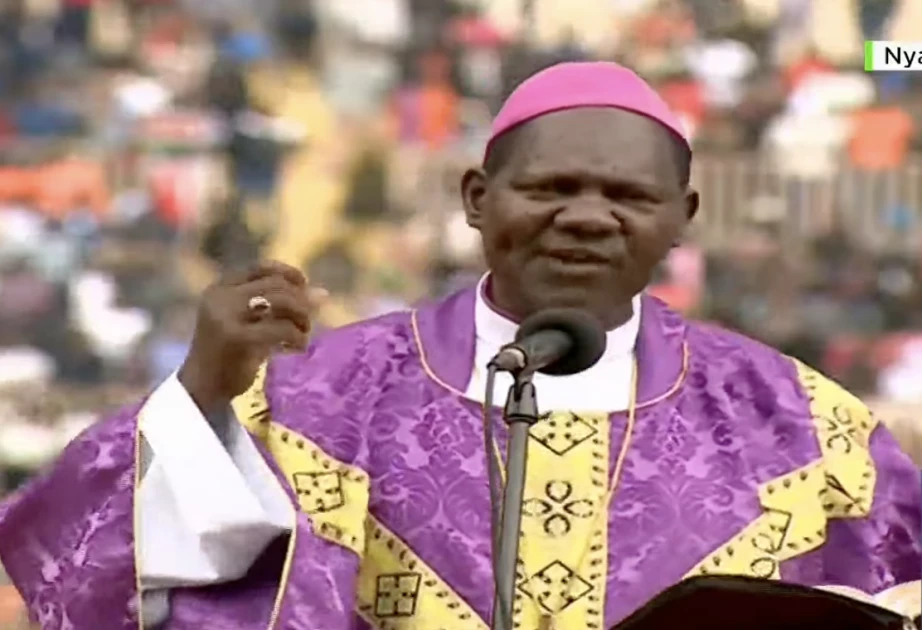A funeral service for the late former Prime Minister Raila Amolo Odinga is ongoing at the Jaramogi Oginga Odinga University of Science and Technology (JOOUST) in Bondo, Siaya County.
Thousands of mourners gathered at the venue to pay their final respects to the veteran politician, as his final journey unfolded in his rural home.
During the service, Bishop David Kodia of the Anglican Church recalled how Raila’s baptism was marked by controversy, as his father, Jaramogi Oginga Odinga, had insisted on keeping his son’s traditional name instead of adopting a Christian one.
“Raila was fully baptized in an Anglican Church and therefore we are giving him a fully Christin burial,” said Bishop Kodia.“Even though his baptism was marked with controversial because the bishop refused to baptize him when his father Jaramogi chose him to be baptized as Raila Odinga instead of choosing a Christian name. So Odinga is a member of the Anglican Church, I want the world to know that,” he added.
Bishop Kodia went on to share that it took Raila a long time before he was fully confirmed in the Anglican faith, and that his last attendance at St. Peter’s Church in Nyamira marked his first time to take Holy Communion.
“He was a member of Parish of St. Peter Church, Nyamira where he was a faith member, and the church is feeling a great lose because of the enormous presence of Raila’s family in the church, which is going to be one minus,” he spoke.
The cleric described the death of Raila Odinga as one of the greatest losses to the dioceses and the nation, “we feel that this is one of the worst that has happened to us as a diocese.”
He further urged mourners to remain hopeful and reflective, emphasizing the day’s spiritual significance.
“I want us to be positive enough and have a deeper reflection of the message God has for us today. Let’s look unto ourselves and see how we can mirror and reflect God’s message,” Bishop Kodia spoke.
The burial ceremony was attended by dignitaries across the country and beyond, including President William Ruto, former President Uhuru Kenyatta, and former Nigerian President Olusegun Obasanjo, a longtime family friend.
Odinga who passed away on Wednesday, October 15, while receiving treatment in Kochi, India, was eulogized as a statesman, a symbol of resilience in Kenya’s political landscape.
Following the funeral service, Odinga’s body will be taken for a private burial at Kang’o Ka Jaramogi, where he will be laid to rest beside his parents, Jaramongi Oginga Odinga and Mary Ajuma Odinga. By Margaret Ruguru, Citizen Digital






